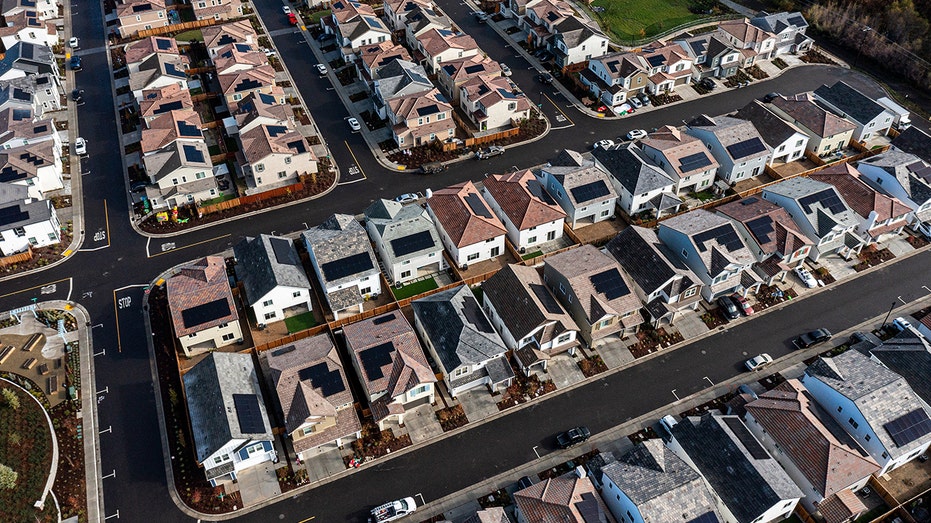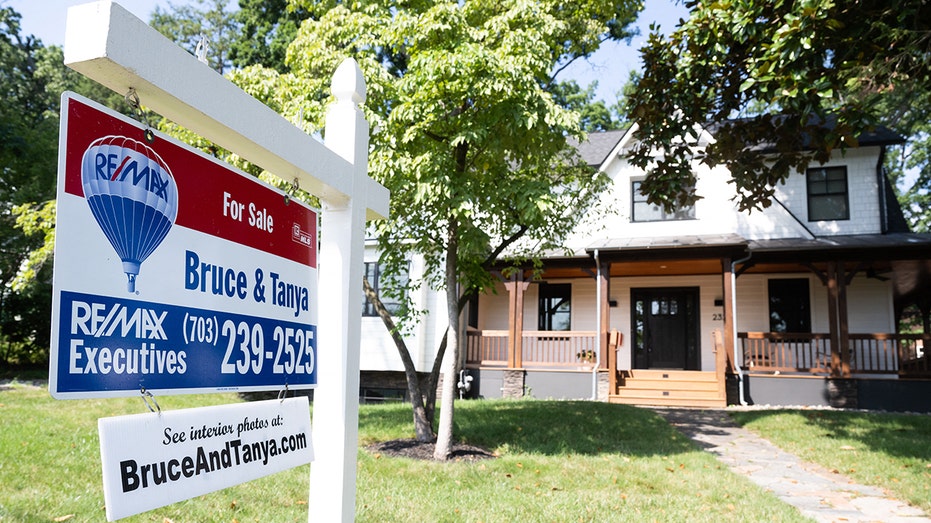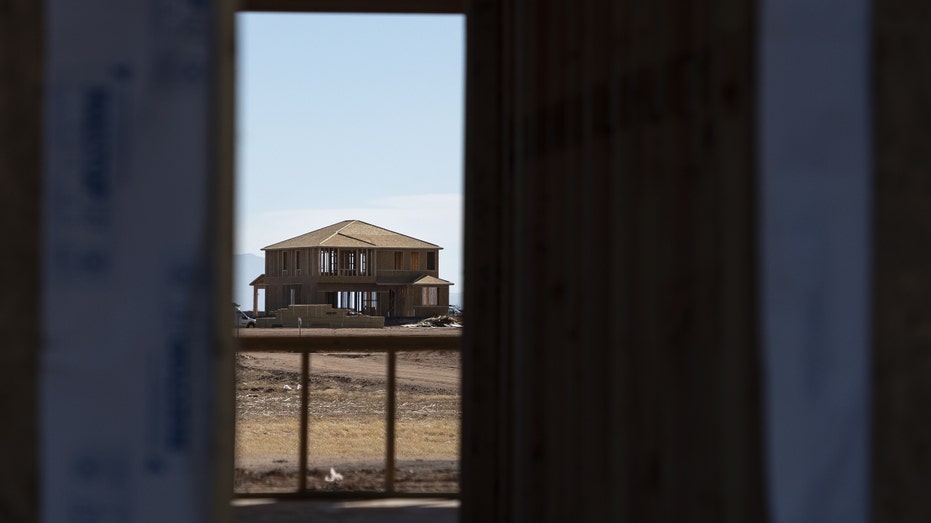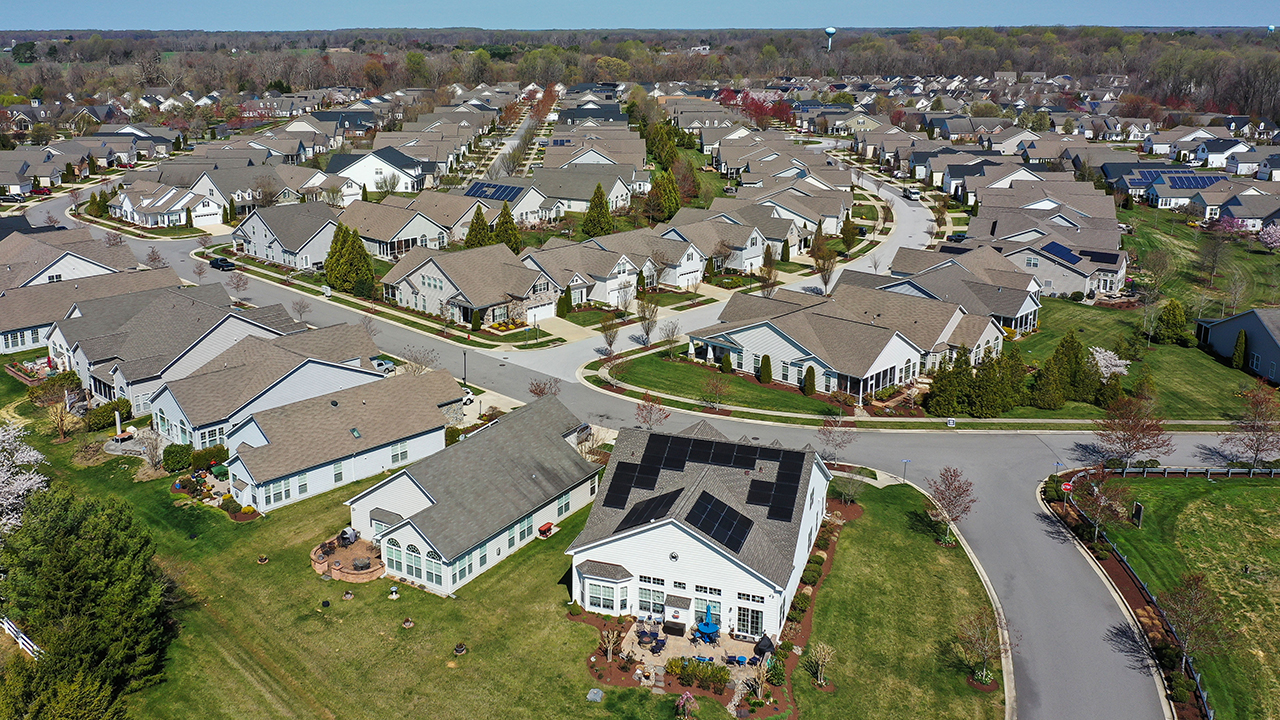Rising property taxes are a housing market killer
Americans are fleeing cities with high property taxes
US housing needs more 'yes in my backyards' policy: Jim Tobin
National Association of Home Builders CEO Jim Tobin explains how local governments have tied up housing construction projects.
Americans are pouring out of cities with high property taxes and relocating to places like Tennessee in search of lower rates as they try to reduce hidden costs of homeownership.
That's according to a new analysis published by Laffer Associates and the Committee to Unleash Prosperity, which found that a growing number of people are leaving Ohio, Illinois and western Pennsylvania in favor of states like Tennessee, where the average property tax rate is just 0.6%.
During the seven-year period from 2013 to 2020, the population in the Cleveland area tumbled by 1.2% and in Chicago by 0.8%.
In Pittsburgh, the population barely increased, rising just 0.8%. By comparison, Nashville grew 7.3% during that same time period. (Tennessee also does not impose a state income tax, unlike Pennsylvania, Ohio and Illinois).
HOUSING STARTS RISE MORE THAN EXPECTED IN JULY DESPITE HIGH MORTGAGE RATES

Homes in Rocklin, Calif., Dec. 6, 2022. (David Paul Morris/Bloomberg via Getty Images / Getty Images)
Cleveland, Pittsburgh and Chicago have some of the highest property taxes in the country, with effective rates of 1.7%, 1.9% and 1.4%, respectively, according to a March report from Construction Coverage, a California-based company that researches construction software and insurance.
"If the level of taxation of the classic Cleveland suburbs applied across the country, the average American homeowner, and indirectly the average renter as well, would be shelling out a thousand dollars a month in property taxes," the Laffer Associates study said. "Not in mortgage interest, insurance and property taxes, but in property taxes alone. And who knows if these taxes will not increase still further in the near future?"
Home prices have changed accordingly in the metropolitans with high property taxes.
COMMERCIAL REAL ESTATE MARKET COULD CRASH SOON. HERE’S WHY
Since the housing bubble peak before the 2008 financial crisis, average Cleveland home prices have risen by 40%. But in Tennessee, home prices have more than doubled.

A house is for sale in Arlington, Va., July 13, 2023. (Saul Loeb/AFP via Getty Images / Getty Images)
"Low property taxes spur home-price appreciation, and high property taxes spur home-price stagnation," the analysis said.
The Laffer Associates, founded and chaired by Art Laffer, a former adviser to President Ronald Reagan, who shaped the theory of supply side economics, argued owning a home in a low-tax environment creates a "completely different" financial experience for the owners.
MORTGAGE CALCULATOR: SEE HOW MUCH HIGHER RATES COULD COST YOU
The group suggested homeowners in Cleveland are required to "plow megabucks" into the yearly tax payments while the property stagnates in value over the long term. In Tennessee, that same homeowner pays a comparatively "light tax bill every year while the property appreciates in value at a healthy rate."
As a result, the Laffer Associates theorized high property taxes essentially incentivize the homeowner not to make improvements because those upgrades will also be taxed at a high rate. The lower the property tax rate, the more houses will attract buyers and bids, and the more encouraged the current owners will be to continue modernizing.

New homes under construction in Tucson, Ariz., Feb. 22, 2022. (Rebecca Noble/Bloomberg via Getty Images / Getty Images)
The problem is home prices have steadily risen this year amid a worsening inventory shortage, meaning property taxes are going up in real terms, where rates are not explicitly cut or capped, like California and Colorado.
GET FOX BUSINESS ON THE GO BY CLICKING HERE
"Some places, like Cleveland and Connecticut, are now in something akin to a death spiral," the study said. "They have raised property tax rates so much that a modestly priced home carries a huge annual tax price tag. Even with much higher effective property tax rates, the decline in home values and lack of price appreciation has depleted the coffers of local governments."





















